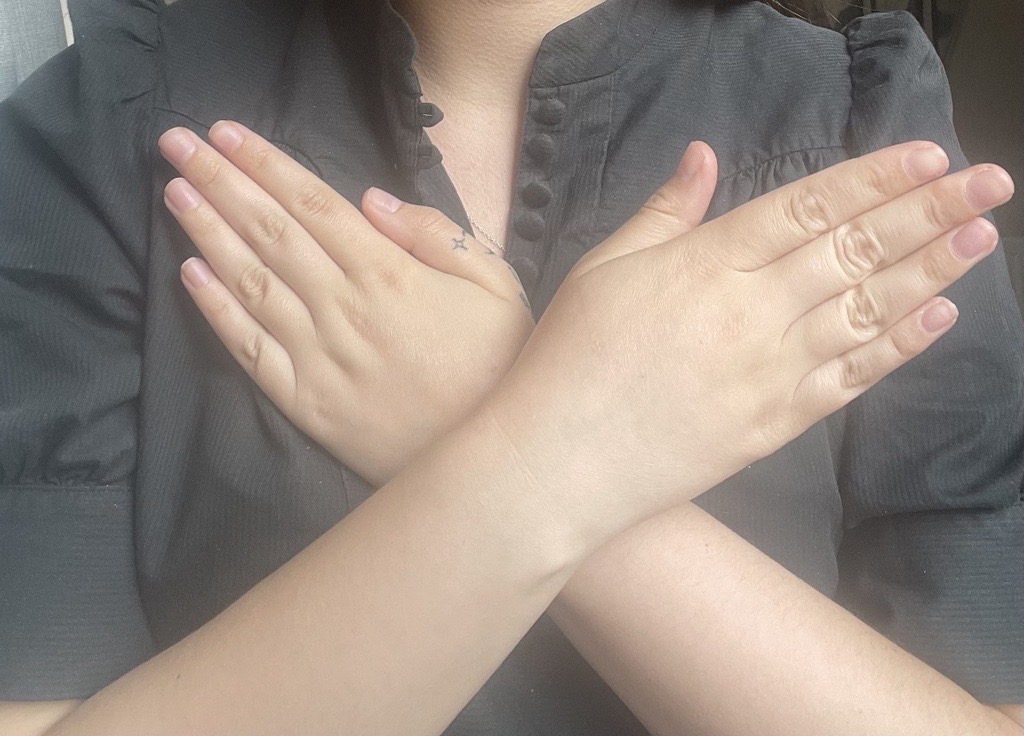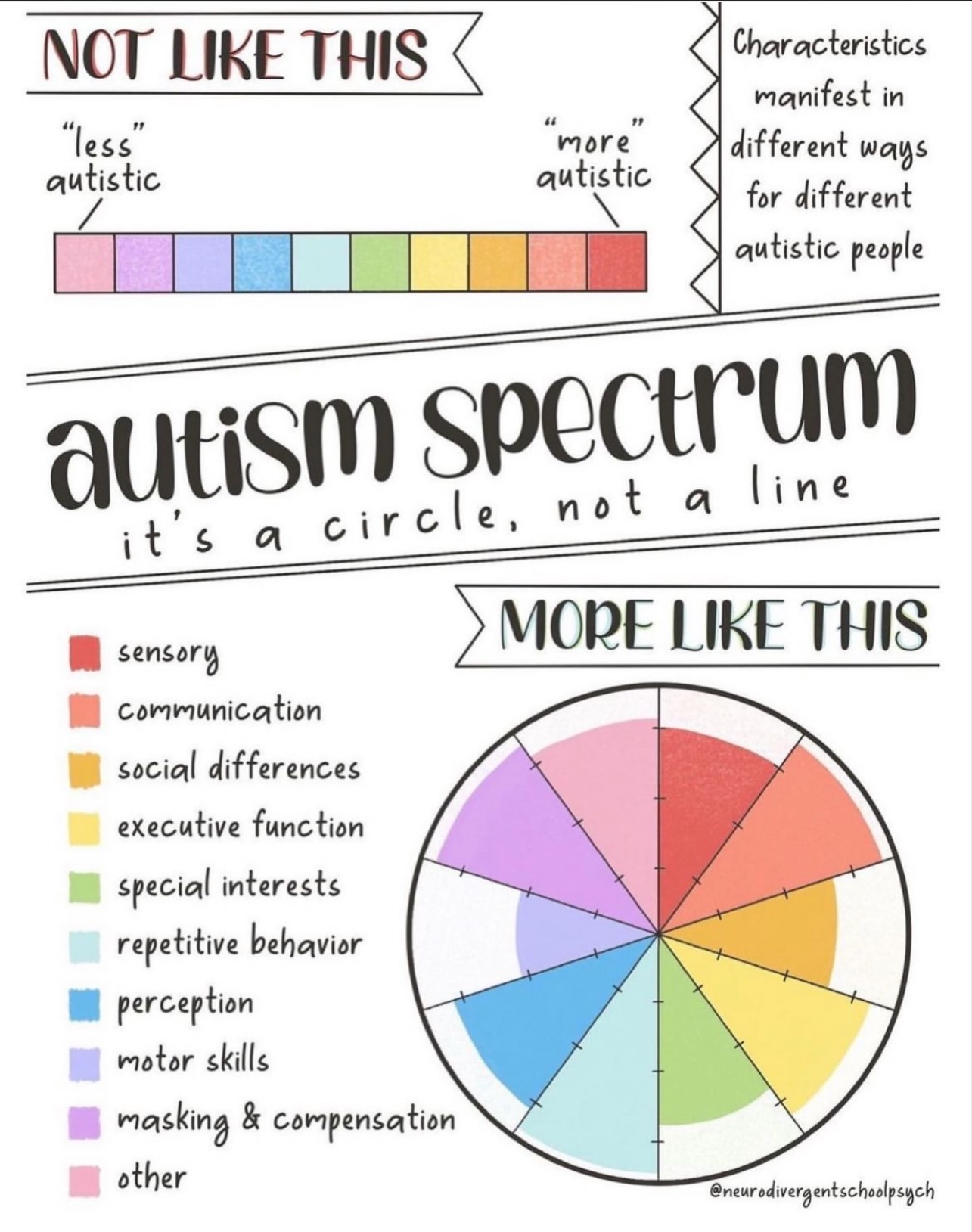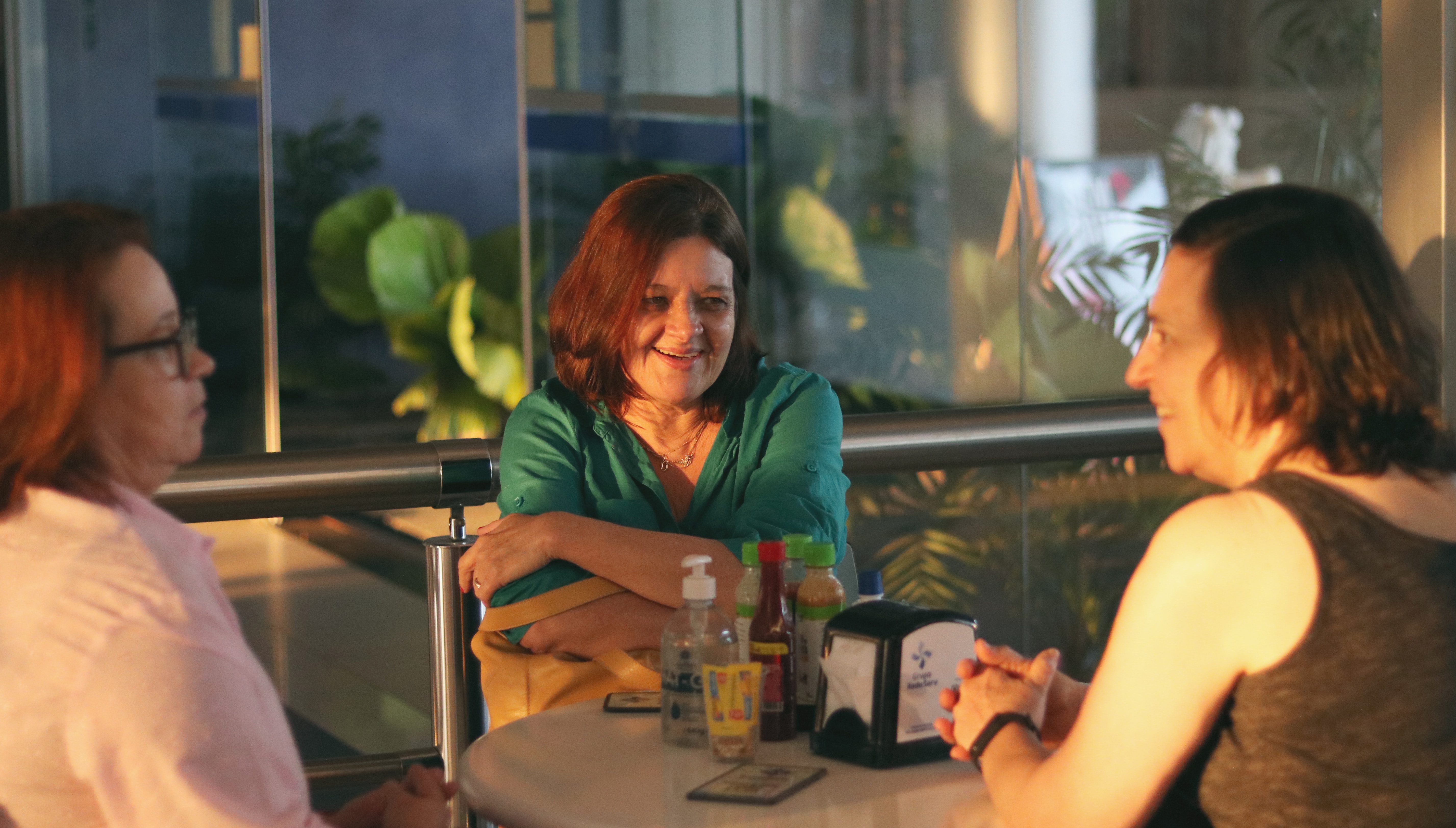How to support an autistic child's mental health
June 18 2023


Owning the difference
Sabita (the child)
Growing up, I often sensed that I was different. I also found that others – teachers, family friends, parents at pick-up time, and even my peers – noticed this. A hypersensitive child, I picked up on the slightest cues and behaviours from others, even though I often had trouble interpreting what they meant.
What I didn’t realise was that I was, in fact, autistic. It was only as an adult however, when I stumbled across TikTok videos of psychiatrists speaking about the differing traits of female autism, that I realised Autism Spectrum Disorder (ASD) was a diagnosis that fit who I was.
The reason for this realisation coming relatively late in life?
My parents didn’t pursue diagnosis when I was younger.
My mum said she always knew I was ‘different’. We often chat about this now. Recently, when I asked why she never took me to an autism specialist, she said, ‘because I didn’t want you to have to live with the stigma that was attached to that label.’
Looking back on the culture she described from almost twenty years ago – where even in the alternative, supposedly all-inclusive school I went to, others formed opinions based on the limited stereotypes they knew about autism – I believe that not getting a diagnosis was the best thing for me at the time. If there were looks and comments without the label, it may only have accelerated into judgement and criticism with a label so heavily steeped in stigma – and this would have affected me even more.
Now, although there are many groups where this is not the case, in several UK societies I have experienced far more acceptance – even if there is still a long way to go when it comes to a public understanding of what the whole autism spectrum can actually entail.
And I think now, if you feel comfortable enough in your social circle, parents should try to own the fact that their child is autistic. Get your child diagnosed if you are able; talk about it. That’s the only way we can start to normalise it.
Others' opinions
Kitty (the parent)
No matter how supportive or loving those around you are, people will always have their own opinions of how you should be raising your child. I would say that

although it is hard, one should try not to be pressured by others’ expectations and societal norms. Instead, it is always okay to trust your own instincts in knowing what your child wants and, crucially, what they don’t want.
Putting some time in to share knowledge with other family members who are not understanding or sympathetic – judgmental, even – can be very worthwhile. They can then relate better to the child and parent when they understand why your child may be upset, fractious, tired or overwhelmed.
I think more specifically, each child is different, and their needs will be individual to them (e.g. scratchy labels, loud noise, fear of lots of things). Just knowing about neurodiversity as a thing now is awfully helpful.
It’s also key to remember that the autistic child, whether they’re hypersensitive or have meltdowns often, is really not a result of "pandering" to a "fussy" child. Every sense and feeling are heightened and more extreme for them, and the parent has to try to appreciate and accommodate that. As a Highly Sensitive Person (HSP) myself, I share a lot of the traits that Sabita exhibited growing up. Maybe it is not easy to relate to your child if you are not a highly sensitive adult also who recognises the child's needs in yourself, but perhaps think back to a time when you have been highly overwhelmed or at breaking point – perhaps your ‘boiling point’ is different to theirs, but we have all been there.
And, importantly, listen to autistic children and young adults who have tips or requests of their own, coming at it from the receiving end!
The most important thing for an autistic child: feeling deeply understood

Sabita
I feel lucky to have had a mother who was also neurodivergent and a dad who was also sensitive – both had similar struggles in school so were always caring.
It goes a long way when parents can take the time to
truly understand their child. It’s like Brenee Brown’s allegory for sympathy versus empathy. If you see someone fall down into a dark place, it’s the difference between looking down and saying “it looks bad down there!” and actually climbing down with them, sitting beside them and experiencing it through their perspective – or as close to that as possible. This is not to say you have to be neurodiverse or autistic too, in order to understand your child – just trying to imagine yourself in their shoes is more than enough. Knowing how they must feel will help you be more patient and compassionate (although of course, you need to look after yourself too – you can’t pour from an empty cup).
So, here are a few things that, as a child who's gone through it, I think parents could try to help maintain an autistic child's mental health…
Create soothing environments
Sabita
Once you know your child’s stressors, limiting these can go a long way. What these are will be different to each individual, but for me, I only felt at ease and could function happily when noise was low or controlled. I remember when I was very young, I was perpetually begging my mum to turn music down or off, or to control the volume of my tape player (wow, I feel old). Bright lights were – and still are – a cause of physical pain to me – there’s evidence that for autistic people, who have

SPD (Sensory Processing Disorder), strong sensory input such as bright lighting can create low-level stress. For me, as well as dimming lighting, changing the colour of any lights, or using starry night sky projectors leads to sensory experiences that are soothing rather than stressful.
In these situations, with the wrong kinds of sensory stimuli removed, we’re given the opportunity to thrive.
Have a meltdown plan
Sabita
This may be especially useful for younger children who would struggle to regulate themselves. Here at Charlie Waller, we love the ‘wellbeing toolkit’ concept. The idea with a meltdown toolkit is similar. It's a repository – physical or just a list – of comfort items and activities.
As always, every autistic child’s needs are different, but some elements that would work for me are:

Things you can say
- "It’s okay that you’re feeling this way."
- "What you’re feeling is totally valid."
- "You’re doing so well/are so brave for trying to get through this."
- "Do you want help or do you want me just to listen?"
Things you can do
- EFT tapping like this ‘butterfly technique’
- Allow your child to have their own space and alone time if they want it.

The 'butterfly tapping' self-soothing technique

Items you can give your child
- Grounding smells like freshly washed clothes or incense
- Sensory play tools like Tangles
- Favourite teddies
- Your child’s ‘safe’ TV shows, audiobooks or storybooks
Read up on autism
Sabita
As everyone on the spectrum is so different, I’ve found it useful to read up on my own specific presentation. For example, autistic females are often, unlike the male-informed stereotype, highly imaginative, having imaginary friends, or hyper-empathetic, often towards animals – in my case, to the point of refusing to let walkers along a rainy path until all the snails had been moved out of the way.
There’s also the difference in communication style. For example, for me as a child, a lack of awareness of social turn-

Credit: @neurodivergentschoolpsych on Instagram
taking cues would lead to info-dumping around my special interests. Children can tell when you’re not listening to them, so it means the world to an autistic child who’s possibly been told they sometimes talk too much, when you are able to listen... As boring as it may feel to hear them brain-dump a list of the birth and death dates of a historical family for fifteen minutes!
Knowing these things will help you as the parent understand why your child is behaving in a way that’s not like other children, and be more open to honouring their individual differences.
Encourage your child
Sabita
One of the biggest threats to my mental health as an autistic child was that I struggled with my self-esteem. But, just as the tiniest ill-thought comment could send me into orbit, equally the smallest comment of praise would transform my belief in my own ability. Almost all of the ventures and career paths I’ve experienced in my life have originally arisen from random remarks from my mum telling me ‘I’ve just read an article about this thing… You could do that!’
I’ve also found it helpful when my parents have encouraged alternative lifestyles. Like so many autistic females (and all genders), I’ve often felt the urge to mask to fit into society, but my mum has reminded me that it’s always worth forging your own path if it will benefit your wellbeing. Particularly, I’ve always been easily overwhelmed by human interaction, so I’m grateful that my mum introduced the idea that it is okay to never have children. There is no need to follow the norm when it doesn’t suit your individual needs.

Having faith in your child
Kitty
Parenting a child with autism is incredibly tough at times. Despite the challenges and the difficult days/months, it is key to always have faith in your child and know they will find their own way into the world
at their own pace.
Remember too that their sensitivity is one of their many golden assets that they were blessed with. Always see your child’s nature as an amazing capacity within them, not a problem to be solved or eradicated.
Getting support as a parent
Kitty
Always, make sure you carve out some time for yourself. In addition to this, if possible, time with other parents who understand is invaluable.

It can be isolating being a parent, and even more so when you have a child who doesn’t fit the norm. I wish there’d been groups to tap into twenty years ago, but now I imagine there are more networks, such as the Trust’s PLACE Network.
Join our free webinar on supporting a child with autism
Hosted by: Our expert mental health trainer, Jo Billington
Perfect for: Parents, carers and anyone who wants to learn more about how to support an autistic child’s mental health
From surviving to thriving: Supporting the wellbeing of autistic children and young people
Many autistic children and young people have difficult school experiences and poor mental health. Using a combination of research evidence and the lived experiences of autistic people across the lifespan, this talk considers how supporting adults (e.g. parents, carers and school staff) can be effective allies and make a positive difference in the everyday lives of autistic children.
This webinar will cover:
- How we can use neurodiversity-affirming approaches to validate autistic children's experiences
- How small environmental changes can have a significant impact on wellbeing.
Thursday 6 July, 6:00 - 7:30pm
Wednesday 26 July, 12:00 - 1:30pm
Related
Popular
Upcoming event

Join us for the Bath Half Marathon to support young people and their mental health!

The Charlie Waller Trust
The Charlie Waller Trust is a registered charity in England and Wales 1109984. A company limited by guarantee. Registered company in England and Wales 5447902. Registered address: The Charlie Waller Trust, First Floor, 23 Kingfisher Court, Newbury, Berkshire, RG14 5SJ.
Copyright © 2025 The Charlie Waller Trust. All rights reserved.






